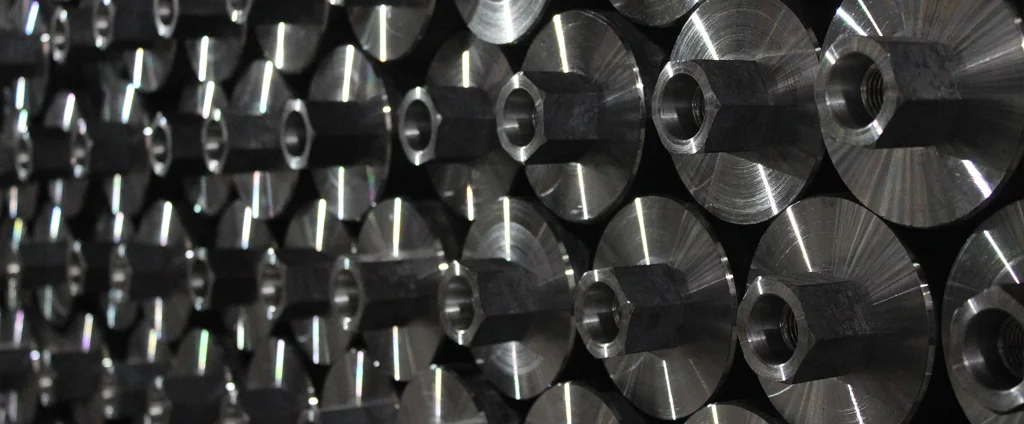SAE/AISI 1046 Carbon Steel (UNS G10460)

SAE/AISI 1046 is a medium carbon steel known for its balanced mechanical properties and good machinability. With moderate tensile strength and wear resistance, it is suitable for heat-treated applications requiring reliable performance in structural, mechanical, and automotive components, including shafts, fasteners, and gears.
| Chemical Composition | ||
|---|---|---|
| Element | Min | Max |
| Iron | 98.41% | 98.88% |
| Carbon | 0.42% | 0.50% |
| Manganese | 0.70% | 1.00% |
| Phosphorous | —— | 0.04% |
| Sulfur | —— | 0.05% |
The following table provides a list of SAE/AISI 1046 properties in both SI and US customary/Imperial units.
Click on the button to switch between Metric and Imperial units.
| Physical Properties | Metric |
|---|---|
| Density | 7850 kg/m3 |
| Mechanical Properties | Metric |
| Tensile Strength (Ultimate) | 650 MPa |
| Tensile Strength (Yield) | 545 MPa |
| Young’s Modulus (E) | 190 - 210 GPa |
| Bulk Modulus (K) | 140 GPa |
| Shear Modulus (G) | 80 GPa |
| Elongation at Break | 12% |
| Poisson’s Ratio (ν) | 0.27 - 0.30 |
| Brinell Hardness | 187 |
| Thermal Properties | Metric |
| Thermal Conductivity | 50 W/m·K |
| Specific Heat Capacity (Cp) | 470 J/kg·K |
| Coefficient of Thermal Expansion (αL) | 1.15×10-5 1/°C |
| Electrical Properties | Metric |
| Electrical Conductivity | 6.38×106 S/m |
| Electrical Resistivity | 1.57×10-7 Ω·m |
The values in this table are approximate and can vary depending on various factors such as the specific manufacturing process and heat treatment applied to the alloy.
Advantages & Disadvantages of 1046 Carbon Steel
| Advantages | Disadvantages |
|---|---|
| Good strength | Limited hardness |
| Good machinability | Susceptible to corrosion |
| Cost-effective | Limited temperature resistance |
Applications of 1046 Carbon Steel
SAE/AISI 1046 is widely used in industries requiring durable, cost-effective components with moderate strength and toughness, including:
- Gears and Shafts: Due to its strength and moderate ductility, it is commonly used in the manufacture of gears, shafts, and other mechanical components.
- Bolts and Fasteners: Good machinability and cost-effectiveness make it suitable for producing bolts, nuts, screws, and other fasteners.
- Axles and Spindles: The combination of strength and toughness makes it suitable for manufacturing axles, spindles, and other load-bearing components.
- Structural Components: Can be employed in structural applications where strength and cost-effectiveness are key factors.
- Hand Tools: Carbon steels in this class are commonly used in the production of hand tools such as wrenches, pliers, hammers, and chisels.
- Springs: Certain types of springs, such as coil springs and leaf springs, can be manufactured using this alloy.
- Agricultural Equipment: Utilized in the manufacturing of various agricultural equipment, including tillage tools, harrow discs, and plowshares.
